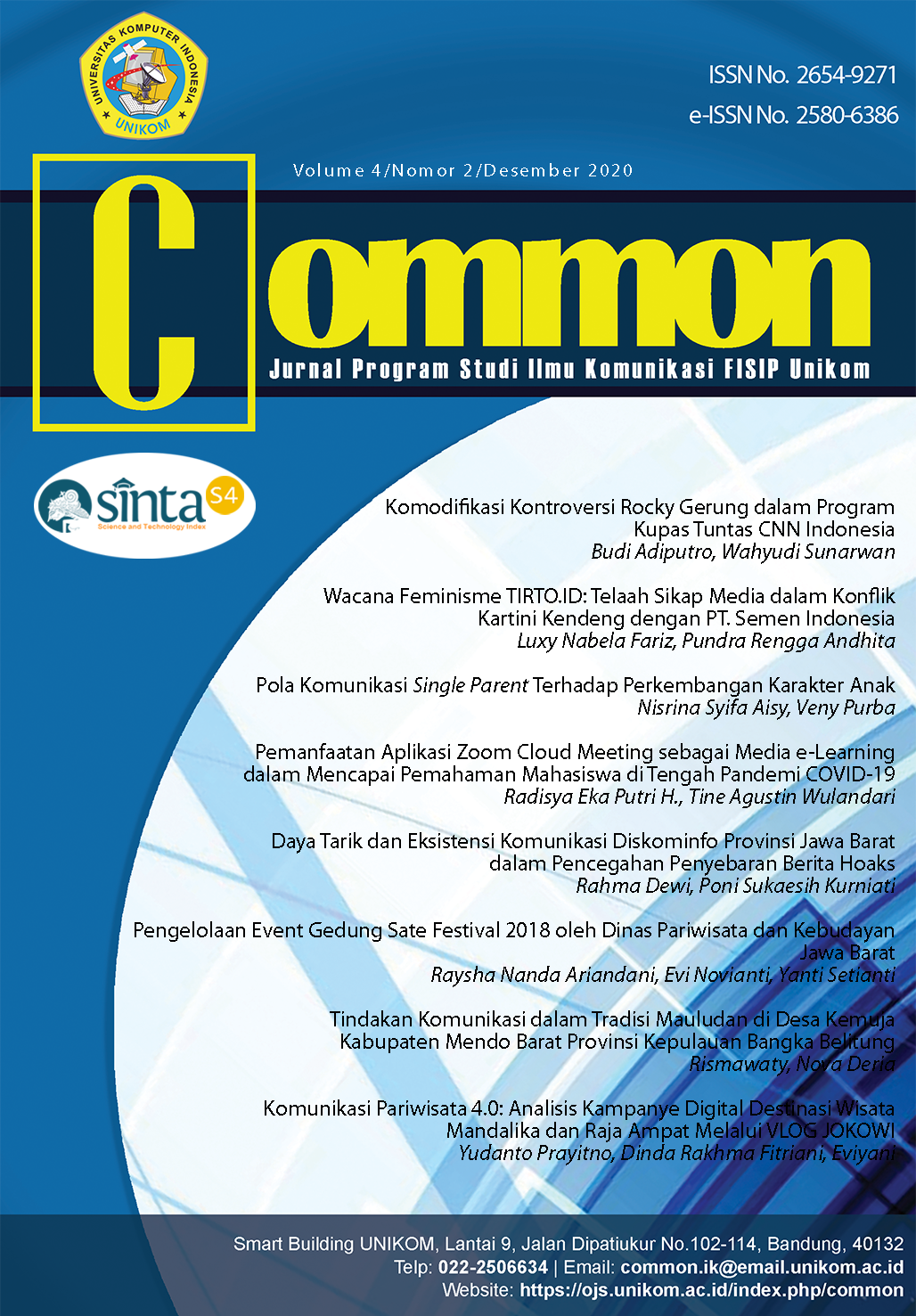PEMANFAATAN APLIKASI ZOOM CLOUD MEETING SEBAGAI MEDIA E-LEARNING DALAM MENCAPAI PEMAHAMAN MAHASISWA DI TENGAH PANDEMI COVID-19
Main Article Content
Abstract
The pandemic of Covid-19 caused the Indonesian government to issue regulations about the implementation of e-learning as a substitute for face-to-face learning. Zoom Cloud Meeting application is one of the e-learning media used in order to achieve students understanding in the midst of pandemic. The research was conducted through a qualitative approach with a case study in one of the department which has the largest number of students at Universitas Komputer Indonesia. Through the purposive technique, six research informants were obtained, consisting of quality assurance coordinator, lecturers and students involved in the learning process using Zoom Cloud Meeting application. Results showed that planning contained an overview of learning activities to be held with Zoom Cloud Meeting media as well as preparations made by lecturers and students. Implementation is the use of Zoom Cloud Meeting application as the media of e-learning to deliver learning materials, in the same way as face-to-face learning, consisting of lectures and discussions. Evaluation is related to technical barriers and the development of learning materials that should be adjusted to e-learning method through Zoom Cloud Meeting application. Researchers concluded, the use of Zoom Cloud Meeting application as the media of e-learning in general has successfully achieving students understanding in the midst of pandemic through various features that support the implementation of e-learning, this happens after all parties involved can adapt to the e-learning system. For that, it is necessary to conduct further research about the impact of e-learning in the improvement the learning quality of students. This research was conducted as part of e-learning development, although it cannot completely replace face-to-face learning but at least supports the learning process by utilizing technological advances so that students are more active and independent, because the learning process is no longer centered on lecturers.

